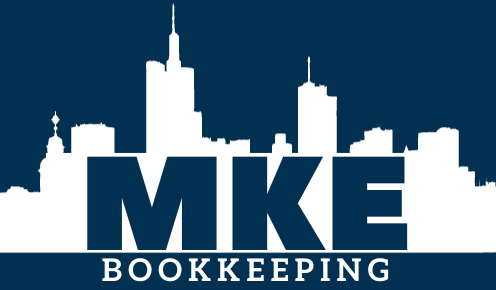Milwaukee Catch Up Bookkeeping for Previous Tax Years
For small businesses in Milwaukee, tax season can be a frantic time. Especially if your bookkeeping isn’t up to date!
If you find yourself needing to catch up on bookkeeping for the previous tax year (or tax years), fear not – with a systematic approach, you can efficiently organize your financial records and ensure a smooth filing process.
In this guide, we’ll walk you through the essential steps to catch up on bookkeeping and get your records in order.
What is Clean Up Bookkeeping?
Clean Up or Catch Up Bookkeeping are essentially the same thing. They mean going back a few months or years and getting all your books in order. If you haven’t been doing your books on a regular basis, don’t feel bad!
Many small business owners in Milwaukee are too busy running their businesses or simply just forget to do there bookkeeping.
But don’t worry, we’re here to help!
Assess the Current State of Your Records
Before diving into the catch-up process, take stock of your existing financial records. Identify gaps, missing documents, or areas where information might be incomplete. This initial assessment will guide your next steps.
Gather All Relevant Documents
Collect all financial documents for the previous tax year. This includes invoices, receipts, bank statements, expense reports, and any other records related to your business transactions. Having a comprehensive set of documents is crucial for accurate bookkeeping.
Sort Documents Chronologically
To maintain accuracy, sort your gathered documents in chronological order. This step is essential for ensuring that transactions are entered into your records with the correct dates. It provides a clear timeline of your financial activities throughout the tax year.
Enter Transactions Into Your Accounting Software
If you use accounting software like Quickbooks Online then enter each transaction into the system.
Include details such as date, description, amount, and appropriate categorization. This step may take time, but it lays the foundation for accurate financial reporting.
Reconcile Bank Statements
Ensure your records align with your actual bank transactions by reconciling bank statements. Cross-check deposits, withdrawals, and any discrepancies. Reconciliation is a critical step in identifying errors and ensuring the accuracy of your financial data.
Use Features in Accounting Software for Efficiency
Take advantage of features in your accounting software that can streamline the catch-up process. Many tools offer bank feeds, which automatically import and categorize transactions, saving you time and reducing the risk of manual errors.
Review and Update Vendor/Customer Details
As you catch up on bookkeeping, don’t overlook the details. Review and update vendor and customer information, ensuring accuracy in your records. This step enhances the precision of your financial data.
Classify and Categorize Expenses
Carefully classify and categorize all expenses. This step is crucial for generating accurate financial reports and ensures that your business’s spending is well-documented for tax purposes.
Address Any Discrepancies
During the catch-up process, discrepancies may arise. Investigate and address any inconsistencies promptly. It’s essential to rectify errors to maintain the integrity of your financial records.
Archive Old Transactions
Consider archiving old transactions to declutter your active records. Archiving keeps your current data more manageable and helps you focus on the relevant financial information for the previous tax year.
Ensure Compliance with Tax Regulations
As you catch up on bookkeeping, pay close attention to tax regulations. Verify that your records comply with the requirements for the previous tax year. This diligence can prevent issues during the filing process.
Generate Financial Reports
After entering and reconciling transactions, generate comprehensive financial reports. Review profit and loss statements, balance sheets, and any other relevant reports to ensure accuracy and completeness.
Learn From the Process for Future Improvement
Take this catch-up experience as an opportunity to improve your ongoing bookkeeping practices. Identify areas where you can streamline processes and implement changes to stay on top of your financial records in the future.
Seek Professional Assistance if Needed
If the catch-up or clean-up process becomes overwhelming, don’t hesitate to seek professional assistance. Accountants or bookkeeping services can provide valuable expertise to ensure accuracy and compliance with tax regulations.
Click Here for a Free Consultation!
Plan Ahead for Ongoing Bookkeeping
As you complete the catch-up process, develop a plan for ongoing bookkeeping. Establish routines and practices to keep your financial records up to date, minimizing the need for extensive catch-up in the future.
If you need help catching up on your 2023, 2022 or even older bookkeeping then it’s better to get started now than not get started at all.
By following the steps above, we can systematically address any gaps in your financial records and set the stage for a smoother tax filing process.
FAQs (Frequently Asked Questions)
Q: How often should I update my bookkeeping to avoid falling behind?
A: Regular updates, preferably on a monthly or quarterly basis, can help prevent the need for extensive catch-up sessions.
Q: Can I use accounting software to catch up on bookkeeping for multiple years?
A: Yes, accounting software is a powerful tool that can streamline the catch-up process, even for multiple years.
Q: What should I do if I discover errors during the catch-up process?
A: Address errors promptly, investigate the root cause, and make corrections to ensure the accuracy of your financial records.
Q: Are there penalties for late or inaccurate tax filings?
A: Yes, late or inaccurate filings may result in penalties. It’s crucial to comply with tax regulations to avoid such consequences.
Q: How can professional assistance benefit the catch-up process?
A: Professionals can provide expertise, ensure compliance, and expedite the catch-up process, especially if it becomes overwhelming.


